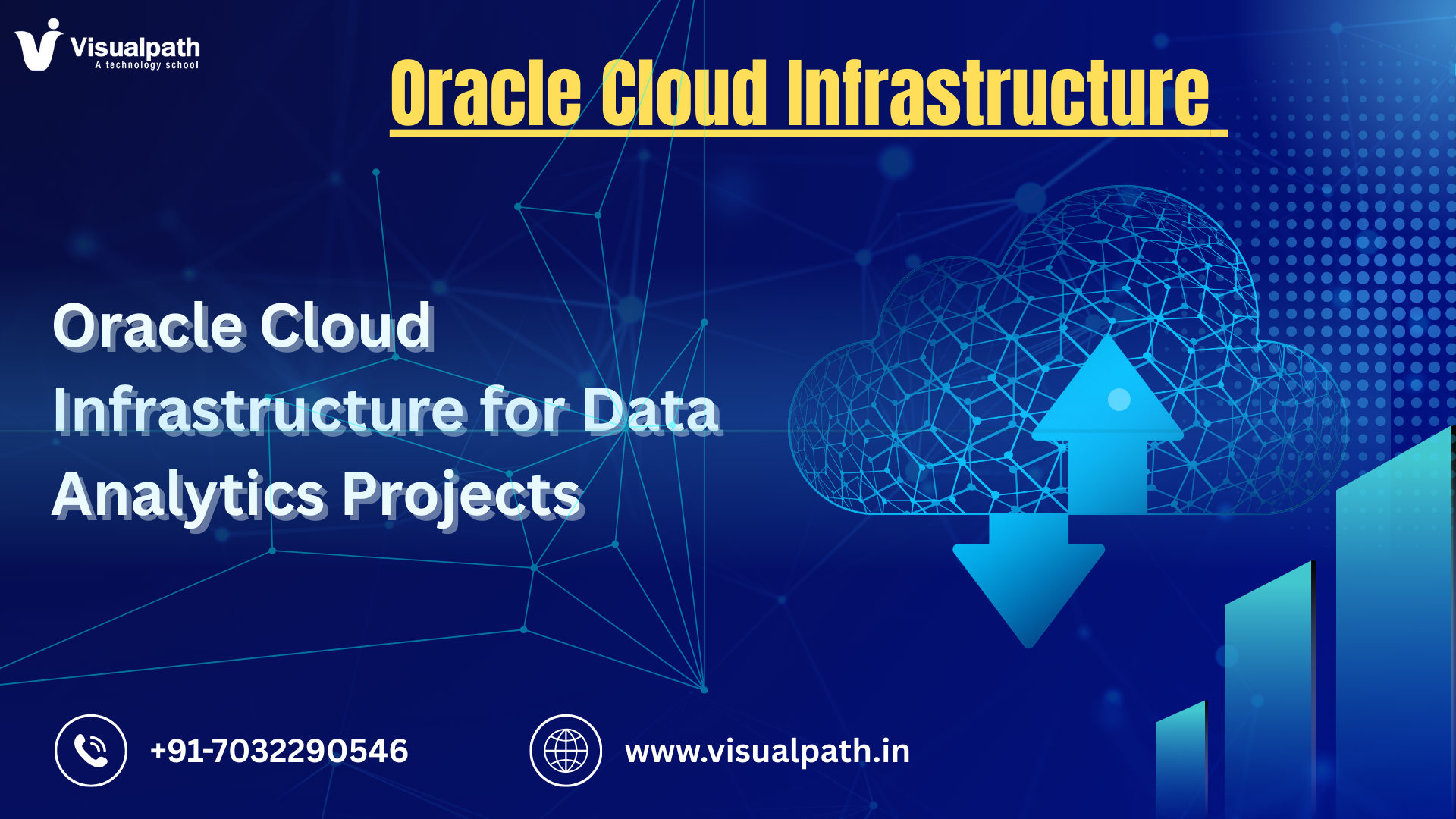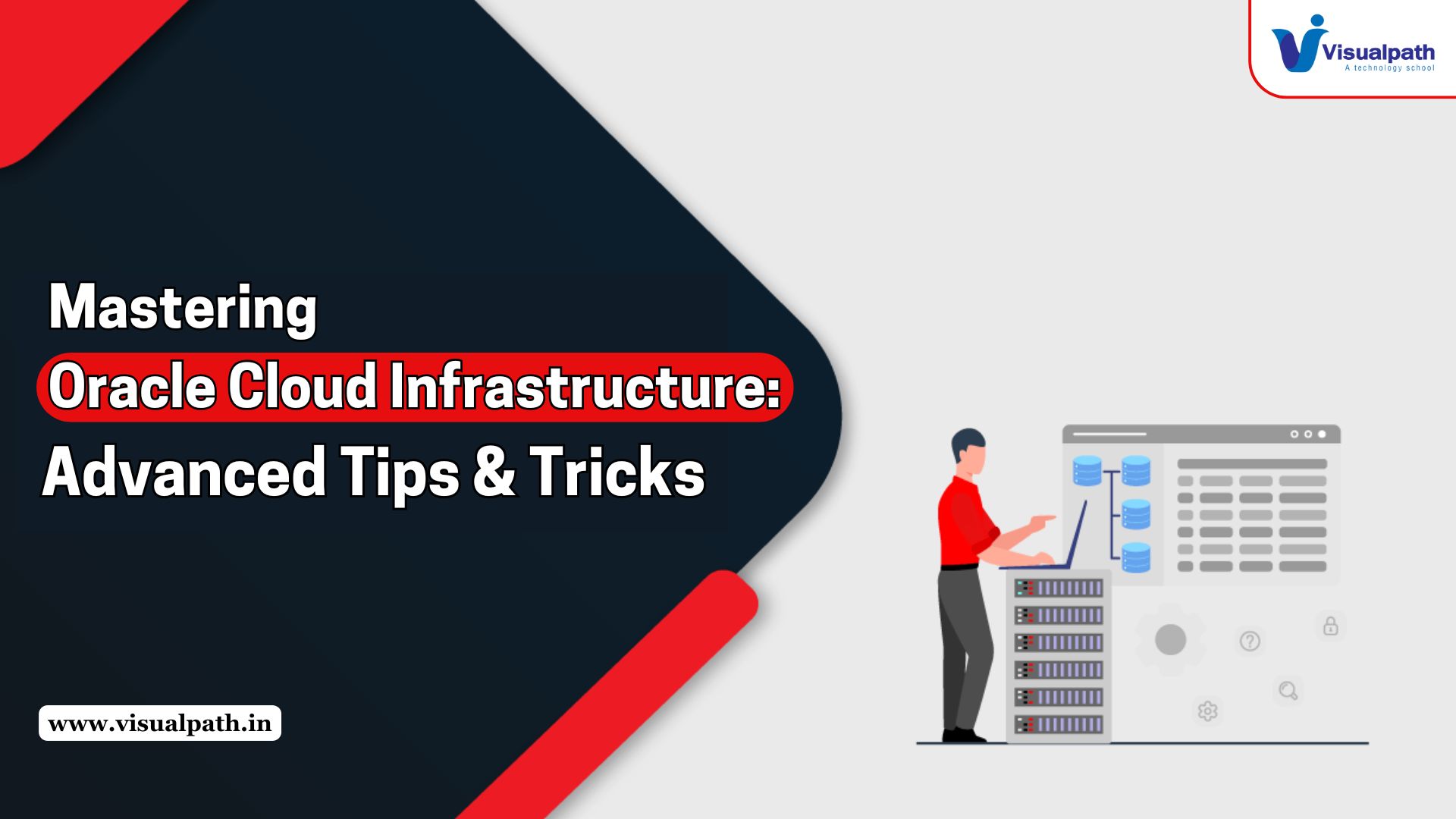Oracle Cloud Infrastructure (OCI) has emerged as a strong contender in today’s data-driven world, offering robust tools and services that empower organizations to manage, process, and analyze vast volumes of data efficiently and securely. Whether it’s real-time analysis, data warehousing, or big data processing, OCI is built to deliver high performance, scalability, and cost efficiency—making it a powerful platform for executing advanced data analytics projects.
Why Choose OCI for Data Analytics?
Oracle Cloud Infrastructure is designed to support demanding workloads while providing low-latency networking, high-speed computing, and flexible storage options. When it comes to data analytics, these capabilities are crucial. OCI offers a suite of services that support every phase of the analytics lifecycle—from data ingestion and transformation to visualization and machine learning Oracle Cloud Infrastructure Online Training.
Key Features Supporting Data Analytics
- Autonomous Data Warehouse (ADW)
Oracle’s Autonomous Data Warehouse simplifies the setup and management of analytics databases. It uses machine learning to automate tuning, patching, backup, and scaling. With ADW, analysts and data scientists can focus on extracting insights without worrying about infrastructure management.
- Oracle Analytics Cloud (OAC)
OAC offers powerful business intelligence (BI) capabilities, enabling users to create interactive dashboards, perform ad hoc queries, and share insights across teams. Integrated with ADW, it supports data preparation, visualisation, and advanced analytics in a seamless interface.
- Data Integration Services
Oracle Data Integration tools help ingest, cleanse, and transform data from various sources—on-premise, third-party, or cloud-based. Services like Oracle Data Integration and Oracle GoldenGate ensure data is moved and synchronized in real time, critical for analytics accuracy.
- Big Data and Machine Learning Tools
OCI supports Apache Spark, Hadoop, and other open-source tools, along with Oracle Machine Learning (OML) for in-database analytics. With support for Jupyter notebooks and Python/R integration, data scientists can build, train, and deploy models with ease.
- Data Lakehouse Architecture
Oracle’s Lakehouse approach combines the scalability of data lakes with the performance of data warehouses. By using OCI Object Storage alongside ADW and OAC, users can store massive datasets economically while still enabling fast, SQL-based querying and advanced analytics Oracle Cloud Infrastructure Training.
Real-World Use Cases
- Retail companies use OCI to analyze customer behavior and optimize supply chains.
- Financial services leverage OCI’s secure and compliant environment to detect fraud in real-time.
- Healthcare organizations use Oracle Cloud for predictive analytics on patient data and treatment outcomes.
- Manufacturing firms apply machine learning models on OCI to improve equipment maintenance and production forecasting.
Benefits of Using OCI for Analytics Projects
- Performance: Bare metal and GPU-accelerated instances ensure faster processing of analytics workloads.
- Security: OCI’s built-in security features, such as data encryption, identity access controls, and audit logs, make it ideal for sensitive data.
- Scalability: Resources can be easily scaled up or down, allowing analytics projects to remain cost-effective.
- Interoperability: OCI works well with third-party tools and has native integrations with popular data platforms.
Conclusion
Oracle Cloud Infrastructure Course offers a comprehensive and secure platform for data analytics projects. Whether you’re a startup looking to analyse sales trends or a large enterprise building predictive models across global datasets, OCI provides the tools and performance needed to turn data into actionable insights. By leveraging its analytics ecosystem—Autonomous Data Warehouse, Oracle Analytics Cloud, data lakes, and machine learning—you can streamline your analytics workflows and drive smarter business decisions.
Trending Courses: Oracle Integration Cloud (OIC), Oracle Fusion PPM, Oracle Fusion HCM (OCI) has emerged as strong contenders in today’s data-driven world, offering robust tools and services that empower organisations to manage, process, and analyse vast volumes of data efficiently and securely. Whether it’s real-time analysis, data warehousing, or big data processing, OCI is built to deliver high performance, scalability, and cost efficiency—making it a powerful platform for executing advanced data analytics projects.
Why Choose OCI for Data Analytics?
Oracle Cloud Infrastructure is designed to support demanding workloads while providing low-latency networking, high-speed computing, and flexible storage options. When it comes to data analytics, these capabilities are crucial. OCI offers a suite of services that support every phase of the analytics lifecycle—from data ingestion and transformation to visualization and machine learning Oracle Cloud Infrastructure Online Training.
Key Features Supporting Data Analytics
- Autonomous Data Warehouse (ADW)
Oracle’s Autonomous Data Warehouse simplifies the setup and management of analytics databases. It uses machine learning to automate tuning, patching, backup, and scaling. With ADW, analysts and data scientists can focus on extracting insights without worrying about infrastructure management.
- Oracle Analytics Cloud (OAC)
OAC offers powerful business intelligence (BI) capabilities, enabling users to create interactive dashboards, perform ad hoc queries, and share insights across teams. Integrated with ADW, it supports data preparation, visualisation, and advanced analytics in a seamless interface.
- Data Integration Services
Oracle Data Integration tools help ingest, cleanse, and transform data from various sources—on-premise, third-party, or cloud-based. Services like Oracle Data Integration and Oracle GoldenGate ensure data is moved and synchronised in real time, critical for analytics accuracy.
- Big Data and Machine Learning Tools
OCI supports Apache Spark, Hadoop, and other open-source tools, along with Oracle Machine Learning (OML) for in-database analytics. With support for Jupyter notebooks and Python/R integration, data scientists can build, train, and deploy models with ease.
- Data Lakehouse Architecture
Oracle’s Lakehouse approach combines the scalability of data lakes with the performance of data warehouses. By using OCI Object Storage alongside ADW and OAC, users can store massive datasets economically while still enabling fast, SQL-based querying and advanced analytics Oracle Cloud Infrastructure Training.
Real-World Use Cases
- Retail companies use OCI to analyze customer behavior and optimize supply chains.
- Financial services leverage OCI’s secure and compliant environment to detect fraud in real-time.
- Healthcare organizations use Oracle Cloud for predictive analytics on patient data and treatment outcomes.
- Manufacturing firms apply machine learning models on OCI to improve equipment maintenance and production forecasting.
Benefits of Using OCI for Analytics Projects
- Performance: Bare metal and GPU-accelerated instances ensure faster processing of analytics workloads.
- Security: OCI’s built-in security features, such as data encryption, identity access controls, and audit logs, make it ideal for sensitive data.
- Scalability: Resources can be easily scaled up or down, allowing analytics projects to remain cost-effective.
- Interoperability: OCI works well with third-party tools and has native integrations with popular data platforms.
Conclusion
Oracle Cloud Infrastructure Course offers a comprehensive and secure platform for data analytics projects. Whether you’re a startup looking to analyze sales trends or a large enterprise building predictive models across global datasets, OCI provides the tools and performance needed to turn data into actionable insights. By leveraging its analytics ecosystem—Autonomous Data Warehouse, Oracle Analytics Cloud, data lakes, and machine learning—you can streamline your analytics workflows and drive smarter business decisions.
Trending Courses: Oracle Integration Cloud (OIC), Oracle Fusion PPM, Oracle Fusion HCM




